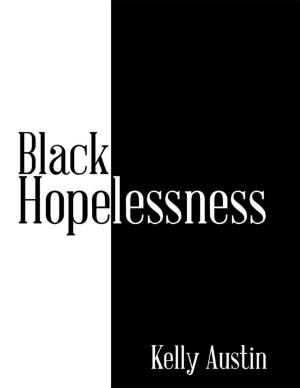| Author: | Douglas Alexander Bors | ISBN: | 9781465320391 |
| Publisher: | Xlibris US | Publication: | January 4, 2007 |
| Imprint: | Xlibris US | Language: | English |
| Author: | Douglas Alexander Bors |
| ISBN: | 9781465320391 |
| Publisher: | Xlibris US |
| Publication: | January 4, 2007 |
| Imprint: | Xlibris US |
| Language: | English |
Where many poets focus on what it is to be a certain type of human being in a particular contemporary situation, Leaning Willow is concerned with what it is to be human, period. Although the collection is unapologetically anti-modernism and all of its manifestations (materialism, scientism, consumerism, individualism, and democracy) and some of the poems have a bit of a bite, most of the pages reflect the authors sense of faith, hope and love. Some of the poems reflect these concerns by addressing big questions such as the nature of time; others address the same concerns by describing a simple event, such as stepping out of a door. Some of the poems express the issues with cutting cynicism; others express the same issues with comic relief. One tool used by the author to create a longer pause or to allow for a second voice or echo to appear is to literally change languages. That is, in several of the poems a line or two of French or Latin a is used. One section of the collection opens with a quatrain in French and closes with its Latin translation, both brief recapitulations of a longer poem found in the opening section. One unique aspect of the collection is that there is a conscious effort to bury a loose story line so that a each section reacts to or extends the previous and the final poems revisit the first. In light of the Wests desire to militarily and economically transmit its "way of life" around the world, this collection questions whether that way of life is something that is worth spreading.
Where many poets focus on what it is to be a certain type of human being in a particular contemporary situation, Leaning Willow is concerned with what it is to be human, period. Although the collection is unapologetically anti-modernism and all of its manifestations (materialism, scientism, consumerism, individualism, and democracy) and some of the poems have a bit of a bite, most of the pages reflect the authors sense of faith, hope and love. Some of the poems reflect these concerns by addressing big questions such as the nature of time; others address the same concerns by describing a simple event, such as stepping out of a door. Some of the poems express the issues with cutting cynicism; others express the same issues with comic relief. One tool used by the author to create a longer pause or to allow for a second voice or echo to appear is to literally change languages. That is, in several of the poems a line or two of French or Latin a is used. One section of the collection opens with a quatrain in French and closes with its Latin translation, both brief recapitulations of a longer poem found in the opening section. One unique aspect of the collection is that there is a conscious effort to bury a loose story line so that a each section reacts to or extends the previous and the final poems revisit the first. In light of the Wests desire to militarily and economically transmit its "way of life" around the world, this collection questions whether that way of life is something that is worth spreading.















